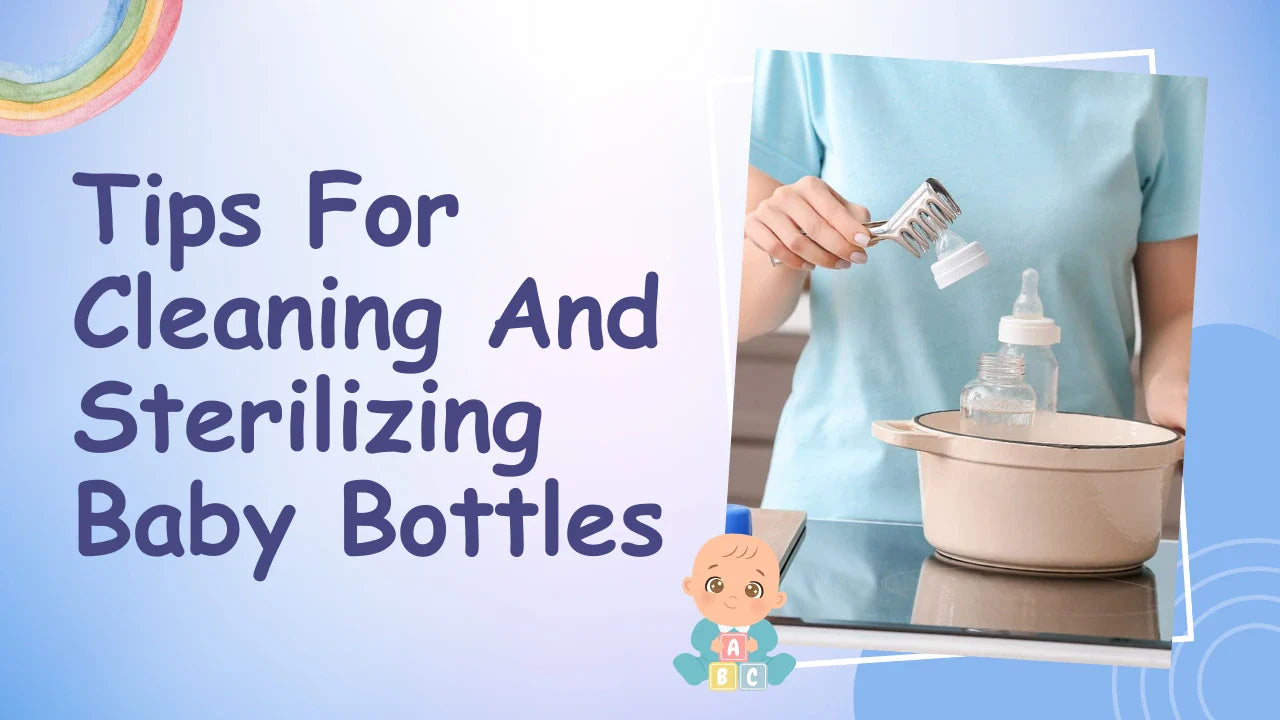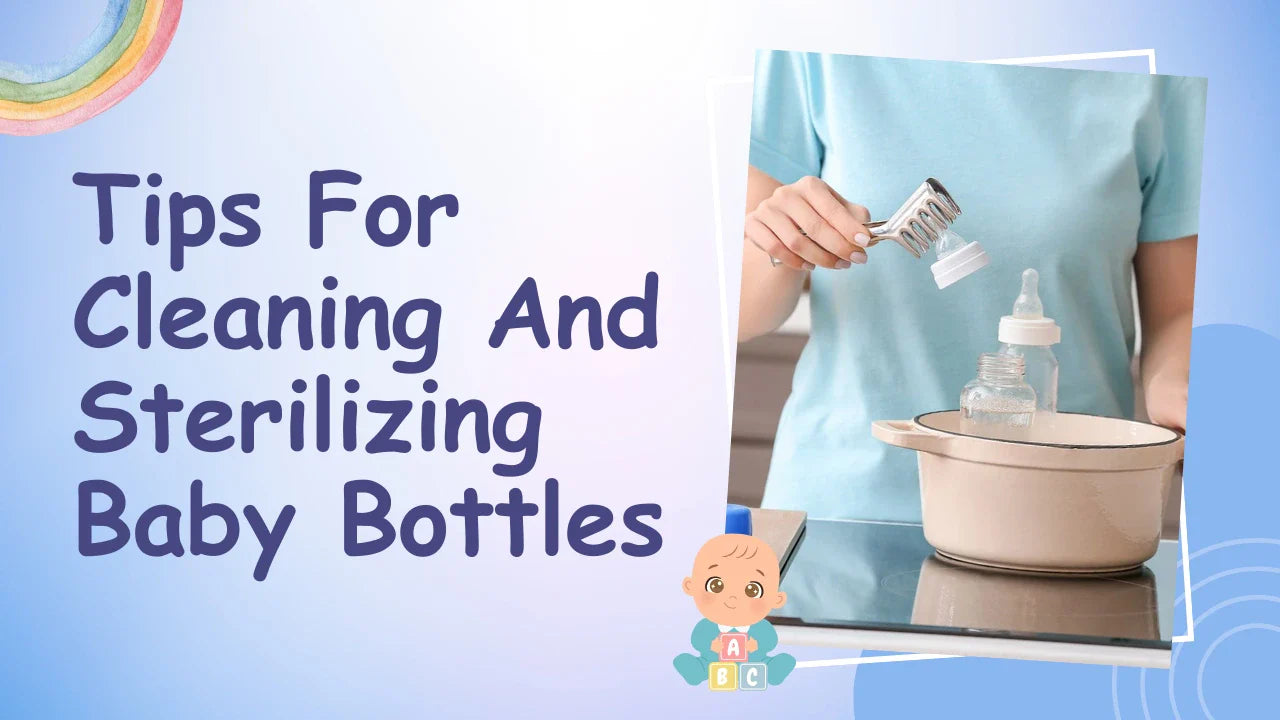As parents, ensuring the cleanliness and safety of our newborns' feeding equipment is paramount. Whether you're using a standard baby bottle or a feeding bottle with spoon for smoother feeding transitions, meticulous cleaning and sterilization are essential. This helps prevent the risk of bacterial contamination and keeps our little ones healthy and happy. In this comprehensive guide, we'll delve into essential tips for cleaning and sterilizing baby bottles as part of your newborn baby care routine.
Understanding the Importance of Clean Baby Bottles
Newborn baby care involves prioritizing hygiene and cleanliness, especially when it comes to feeding equipment. Baby bottles come into direct contact with your baby's mouth and milk, making them susceptible to bacterial growth if not cleaned and sterilized properly. Maintaining clean and sterile baby bottles is essential for preventing infections and keeping your baby safe and healthy.
Essential Tips for Cleaning Baby Bottles
- Wash Thoroughly After Each Use: After each feeding session, wash baby bottles, nipples, and caps thoroughly with warm, soapy water. Use a bottle brush to reach all crevices and ensure thorough cleaning. Rinse with clean water to remove any soap residue.
- Use a Dedicated Bottle Brush: Invest in a high-quality bottle brush specifically designed for cleaning baby bottles. These brushes typically have soft bristles and a long, narrow design to effectively reach inside the bottle and remove stubborn residue.
- Pay Attention to Nipple Cleaning: Pay special attention to cleaning bottle nipples, as milk residue can easily accumulate inside the nipple holes. Use a small nipple brush or a toothbrush to clean the inside of the nipple thoroughly.
- Avoid Harsh Chemicals: Steer clear of harsh chemicals, bleach, or abrasive cleaners when washing baby bottles. Opt for mild dish soap that is free from fragrances and dyes to minimize the risk of irritation or allergic reactions.
- Air Dry Completely: Allow washed baby bottles and components to air dry completely before reassembling and storing. Avoid using towels or cloths to dry bottles, as they may introduce lint or bacteria.
Read more: Choosing the Best Baby Feeding Bottle for Your Infant
The Importance of Sterilizing Baby Bottles
While thorough cleaning is essential, sterilizing baby bottles is an additional step that helps eliminate harmful bacteria that may remain even after washing. Newborn baby care guidelines recommend sterilizing baby bottles regularly, especially during the first few months when your baby's immune system is still developing.
Tips for Sterilizing Baby Bottles
- Boiling Method: The boiling method is a simple and effective way to sterilize baby bottles. Place clean bottles, nipples, and caps in a large pot filled with water. Bring the water to a rolling boil and let it boil for at least 5 minutes. Remove the bottles using tongs and let them air dry completely.
- Steam Sterilizers: Electric steam sterilizers offer a convenient and efficient way to sterilize baby bottles. Follow the manufacturer's instructions for loading the sterilizer and add water as directed. Once the sterilization cycle is complete, allow the bottles to cool before removing them.
- Microwave Sterilization Bags: Microwave sterilization bags are another convenient option for sterilizing baby bottles. Simply place the clean bottles and accessories in the bag, add water as directed, and microwave according to the instructions. Allow the bottles to cool before removing them from the bag.
Read More: When Should Your Baby Start Using a Water Bottle? Find Out!
Maintaining Sterility and Hygiene
After sterilizing baby bottles, it's important to handle them with care to maintain their sterility. Store sterilized bottles in a clean, covered container or in the sterilizer itself until they are ready to be used. Avoid touching the inside of the bottles or nipples to prevent contamination.
Conclusion: A Healthy Start for Your Baby
In newborn baby care, ensuring the cleanliness and safety of baby bottles is essential for your baby's health and well-being. Whether you're using traditional bottles or pairing them with a baby feeding spoon for smoother transitions, maintaining hygiene is crucial. By following these tips for cleaning and sterilizing baby bottles, you can create a safe and hygienic feeding environment for your little one. From thorough washing to regular sterilization, each step plays a crucial role in maintaining the highest standards of cleanliness and hygiene in your newborn baby care routine. With proper care and attention to detail, you can give your baby a healthy start and peace of mind as they grow and thrive.




